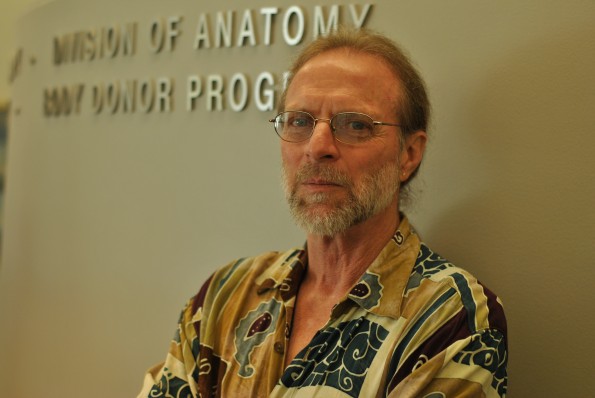
The dead help teach the living through the University of Utah Body Donor Program.
Last year, over 200 individuals chose to donate their bodies to science. Kerry Peterson, who directs the program, said the reason for doing so is unique for each individual, but the common thread is altruism. “We have had a person as young as 13 and as old as 108 donate their bodies. People see themselves as helping to benefit the health of future generations.”
The U of U program accepts bodies from Utah and surrounding states. It is the cadaver resource center for the Intermountain West. The center will pick up a body within approximately 50 miles, or accept a body within a week after a funeral service. Once on site, the body is prepared with embalming fluids to keep it supple. Now the real work begins. Each semester, four first year medical students are assigned to a body, and last year 31 bodies were used for this purpose. The students need to be diligent. “Four times a year, they have nine minutes to answer 30 anatomy questions,” Peterson said.
Advanced residents and practicing surgeons also return to learn new techniques. In addition, bodies are allocated to schools throughout the region for nursing and EMT classes.
The bodies are used by the program between three months and two years. Afterwards, they are cremated and the cremains are returned to the family. “We have known families to scatter the cremains on the top of Mount Olympus and in the Ganges,” Peterson said. Equally important, the center helps families attend to the business of death by filling out necessary paperwork. “For some people, we have been the family mortuary for generations.” In gratitude, the center holds an annual memorial service in May.
For those interested in donating their body, Peterson said the center assists with all forms. One thing he emphasized is that the bodies are treated with the utmost respect. “We tell the students that one way to show respect is learn as much as they can.”
Kerry Peterson and the Body Donor Program can be contacted at 801-581-6728.
Indigent Burials
The phrase “dead broke” truly applies to those who are deceased and indigent.
Each year nearly 200 persons expire in Salt Lake County who lack means for a burial or cremation. Nicholas Rupp of the County Health Department said they either have no next of kin, the next of kin will not participate or they cannot afford a burial. “About 25 percent of the people have no known relatives,” Rupp said.
The county contracts for its indigent services with Carver Mortuary Service and offers up to $350 towards services for individuals who qualify. Carver, in turn, works with the medical examiner and police to locate relatives. The mortuary keeps the physical body for up to a month while this is occurring. Otherwise, the remains are cremated and stored for up to several years if necessary. Carver is also connected to the Missing in America project, which identifies the remains of cremated veterans and accords them a full military honors burial service.
In the end, however, it does not matter if a person was wealthy or poor when they died. The ashes all look the same.
Carver Mortuary Service is located at 847 West 2500 South.





